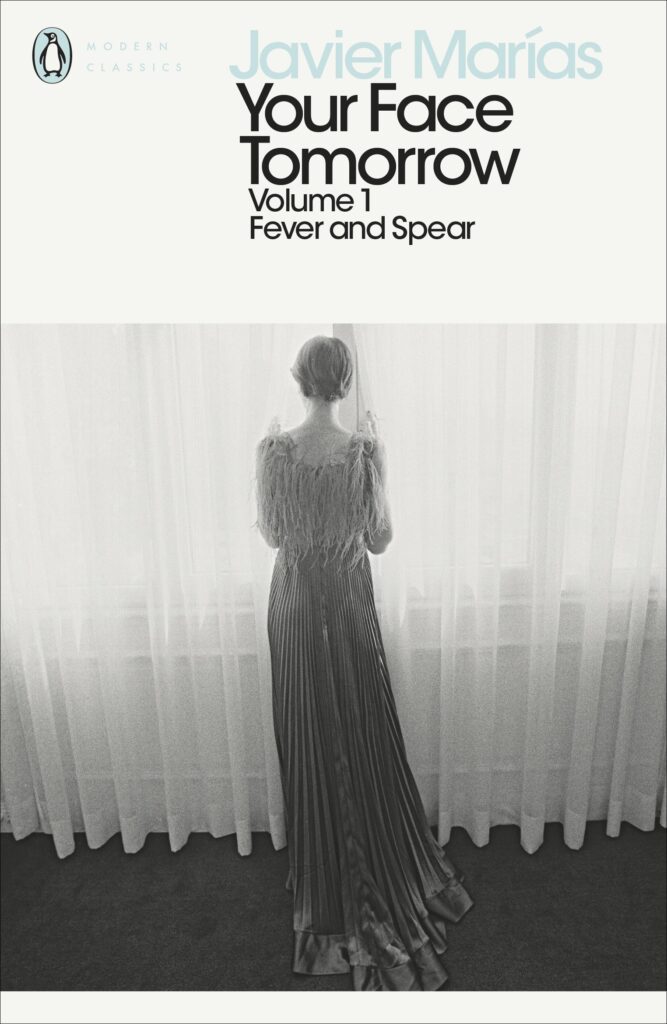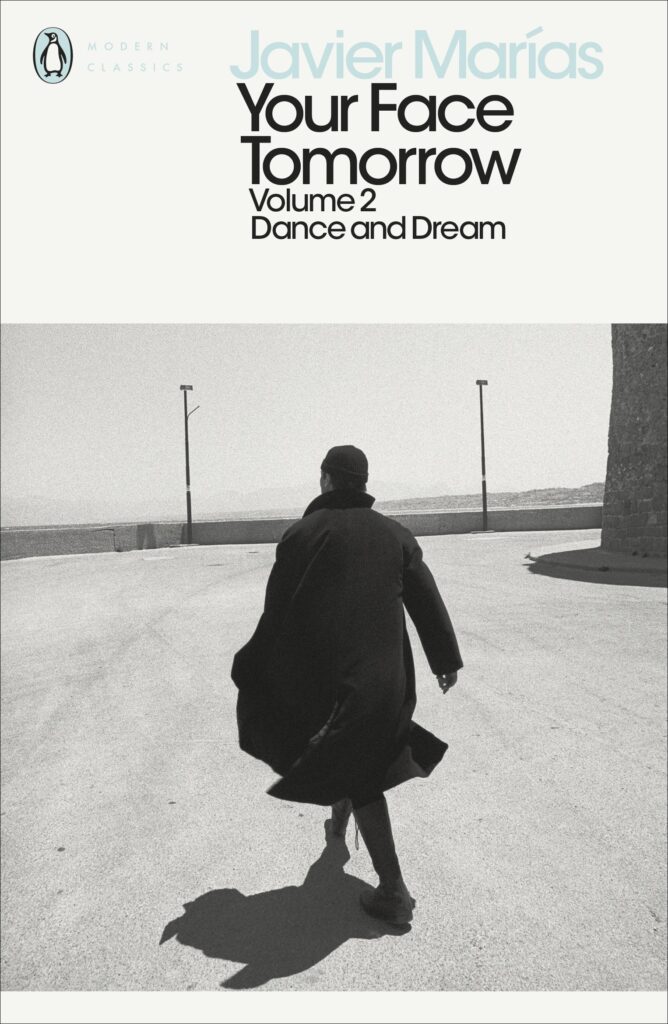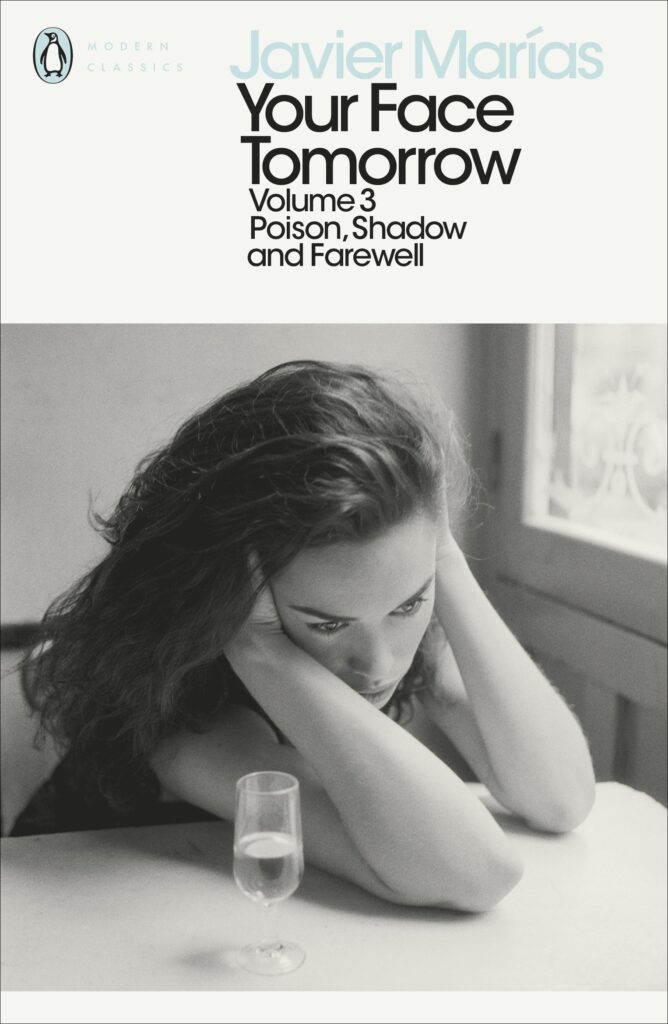“The way they teach history is all wrong,” a veteran literature teacher told me during my first year on the job. In his inimitable Bronx brogue, he added that, “If I were teaching history like you, it wouldn’t be with a textbook—it would be with novels, so kids could get the feel of what history was like.”
My colleague was right to an extent. History is not only studied; it is lived and felt. But the question remains: Does fiction count as history? Put another way, can history be taught—entirely or in part—through fiction? The Spanish author Javier Marías, who wrote novels that took up major themes of Spanish history such as the Civil War (1936-1939) and transition to democracy after the death of the dictator Francisco Franco in 1975, would have sympathized with my colleague’s sentiment, but probably not with his pedagogical proposal.
In an interview with the BBC, Marías (who died in September 2022) received a question about why, if his novels were so dense and philosophical, the author didn’t simply write works of philosophy. He responded by distinguishing “literary thought or literary thinking” from other kinds of knowledge:
In the same way there is scientific thought, or psychological thought, or religious thought, I think there is a literary way of thinking of things. [While in philosophy] If you write a philosophical treatise you must go step-by-step and somehow demonstrate everything you’re saying is true or acceptable … in literature [by contrast] you don’t have to justify anything.

Literary truth, in other words, is a kind of truth in its own right—and on its own terms, not to be confused with other categories of knowledge. History proper, like philosophy, adheres to its own set of rules: facts and data. Evidence is how history is justified; but because literature is a product of the imagination, even if it references history, it is not subject to the same burden of proof. Aesthetic merit and historical merit are not fungible intellectual commodities, even if each informs the other.
It is ironic—and ultimately tragic—that in Spain, as across the West, the popular imagination increasingly fails to distinguish between history and literature, between evidence and intuition, perception and reality, ‘memory’ and facts. In her book Making Memory (Haciendo Memoria: confluencia entre la cultura y la memoria de la Guerra Civil Española del siglo XXI), Carmen Moreno-Nuño identifies the modified role of Spanish fiction—its mission-creep, in my view—into the field of history. According to her, fiction about the Spanish Civil War, also referred to as “historical memory fiction” (ficción de memoria histórica):
has come to be understood as responsible for conserving collective memory through the creation of fictional works. In fact, what it does is rescue true stories that had been relegated to obscurity, which broadens even further its social function. Therefore the novel has acquired a twofold responsibility to generate collective memories and to preserve those that already exist, which distances the novel from its natural terrain, which is fiction, and brings it closer to history.
It was only a matter of time before the bringing of fiction “closer to history” would ineluctably entail the conflation of the two. Enter Spain’s oxymoronically titled laws of ‘historical memory’ (2007) and ‘democratic memory’ (2022). It is no coincidence that the term ‘memory’ appears both in an academic study of literature and in two controversial laws signed into existence under respective socialist prime ministers in Spain. Indeed, the very concepts of ‘historical memory’ and ‘democratic memory’—both promoted by left-wing governments as a way to ‘acknowledge’ and ‘recognize’ the supposedly forgotten victims of Francoist oppression from 1936-1975, seem to be the product of an ethereal field of ‘memory studies,’ or ‘postmemory,’ much in vogue in university humanities departments throughout the West.
The texts of these historical memory laws are slippery at best and read almost like a master’s thesis in critical theory from a mid-tier American university. The term ‘reparación,’ for instance, appears throughout the text of the 2007 law, but its meaning is never clearly defined. Indeed, upon consulting translations by other academics and Spanish-English dictionaries, I discovered that the term ‘reparación’ could be variously translated as ‘compensation,’ ‘recognition,’ and even ‘reparations.’ Linguistic indeterminacy—stylized wordplay, if you will—is a hallmark of modern academia, and now, Spanish law.
The 2022 law arguably goes even further in its embrace of jargon-heavy and solipsistic academic diction. “The construction of historical memory is nothing new,” the law states, adding::
from the outset the Franco regime imposed a powerful policy of political memory that excluded, criminalized, stigmatized and made radically invisible (invisibilizaba radicalmente) the defeated victims after the triumph of the military coup against the legitimate Republican government.
What exactly is the difference between “making invisible” and “making radically indivisible”? For that level of expertise, you’d need to consult the sentinels of academia’s ivory towers.
One might reasonably suppose that the solution to a “powerful policy of political memory” would be to allow for historians and individuals to decide “political memory” on their own terms and through their own efforts. Yet, the laws’ authors instead insist that Spain has an unfinished obligation of memory (deber de memoria) that must be re-directed, and claim that such channeling of historical memory will somehow foster more—not less—social cohesion. The law’s stated “pedagogical purpose” is to be promoted in the spheres of “research” and “education” (i.e. school curricula) so that “totalitarianism” can never again flourish in Spain, as it did under Franco. More dangerous than the goal’s stated “pedagogy” though is the fact that the state, through the coercive force of the law, can theoretically punish those who violate “democratic memory” by leveling fines or even banning teachers and professors from their profession.
The logical decision, given Spain’s recent history, would be to unshackle “historical memory” from the state; but instead of freeing so-called “political memory” from vassalage to the state, Spain’s Socialist Party and its allies who created the laws of historical memory would rather have it serve a new master.

Javier Marías’s magnum opus is his three-volume novel Your Face Tomorrow. An important plotline of the book involves the narrator’s (Jaime Deza’s) learning about the Spanish Civil War and World War II through the memories of his father, in the case of the former, and a British mentor and colleague at Oxford in the case of the latter. Each of these figures, in turn, are loosely based on Marías’ own father, Julián Marías, and the British historian Sir Peter Russell, whom the author knew well. Over the course of the novel, each of these figures, in keeping with the so-called ‘testimonial’ component of ‘historical memory fiction,’ tell of the atrocities they witnessed during the war; that is, the characters foreground their ‘historical memories,’ which gives the novel the aesthetic feel of authenticity.
As Moreno-Nuño explains in her book, this act of telling and of memory often serves, in the case of fiction of historical memory, as “cathartic therapy, as an act of moral justice and as an instrument to restore a fragmented community. Or at least this is the expectation of many artists, readers, and even critics themselves. “ She goes on to explain that the “political worth” of such cultural production marks a turning point in Spanish arts and letters, as well as historiography, over the last twenty years or so, before which a so-called “pact of forgetting” had allegedly reigned supreme:
When faced with the desire to forget [the past] that has characterized an important segment of Spanish society and its political class, many cultural artifacts [of the early 21st century and later] reflect the desire to become acquainted with and to recognize a past [Spain’s Civil War, Franco-era dictatorship, and transition to democracy] that should be the object of permanent effort of political, social and cultural memory. [emphasis mine]

Memory, by the logic of Spain’s laws of “historical” and “democratic” memory and the politicians and academics who support the legislation, must never rest. When and if it does, or if it ever veers onto the wrong path, Spain’s (socialist) government will be there to whip it back into shape.
But what does Javier Marías’ novel say about historical memory? Is memory, through the lens of his narrator and his Spanish Civil War-WWII survivor father and mentor, viewed as an unequivocal good? A leitmotif that runs through the novel like an undertow is the novelist wondering aloud about whether silence or the act of narration (telling) is the wiser choice. These are the novel’s memorable opening lines:
One should never tell anyone anything or give information or pass on stories or make people remember beings who have never existed or trodden the earth or traversed the world, or who, having done so, are now safe in uncertain, one-eyed oblivion.
The novel’s narrative drive, as its opening would suggest, is propelled in large part by the tension between telling and silence that defines the lives of both his Spanish father and his British academic mentor, each of whom have witnessed and/or been party to the atrocities of war. It would be reductive—and false—to suggest that Marías’s novel negates the value of memory, and of its transmission from one generation to the next, altogether. And yet, the author clearly does make authoritative pronouncements vis-a-vis the World War II generation—which Americans refer to as the ‘silent generation’—about the potentially poisonous impact of resurrecting memories of war and wartime atrocities in particular. As the narrator’s father opines:
There’s an obsession with understanding the loathsome, there’s an unhealthy fascination with it, and it does the loathsome a huge favour. I don’t share the modern world’s infinite curiosity about something that can never be justified, however many different explanations you come up with, psychological, sociological, biographical, religious, historical, cultural, patriotic, political, idiosyncratic, economic, anthropological, it doesn’t matter…there are some investigations that sully the investigator, and even some that infect you without giving anything valuable back in return.

These are haunting words—words that I could easily imagine coming from the mouth of my German grandfather, a World War II survivor, and that countless others could imagine from the lips of their relatives, who perhaps only ever talked about that war obliquely, or in passing, or, as we could sense, glossed over the more horrific details of what they saw, and in some cases what they did.
Indeed, an unassailable axiom of Spain’s laws of historical and democratic memory seems to be that more memory—more discussion of the past, although in terms defined and controlled by the Left—is always a good thing. The rationale is that this somehow always generates more consensus, more peace, and more democracy, as if by mere virtue of the momentum of memory itself.
The novel’s World War II spy—and arguably its moral center of gravity—Sir Peter Wheeler, disabuses us of the notion that all talk is therapy and all memory is reconciliation, saying:
Talking is not in itself either good or bad, and as for people sorting things out by talking to each other, well, talking is just as much a source of conflict and misunderstanding as it is of harmony and understanding, of injustice and reparation, of war and armistice, as much a source of of crimes and betrayals as it is of loyalties and loves, of condemnations and salvation, of insults and rages as it is of consolations and mollifications.
It is my contention that you could substitute the word “talking” for the phrase ‘memory’ or, better yet, ‘historical memory,’ and the statement would ring just as true. Historical memory is neither good nor bad; historical memory is as much a source of conflict and misunderstanding as it is of harmony and understanding. As Wheeler says near the end of the novel’s final volume, “You can’t look back after a war, don’t you see? Not if you want to go on living.”
Again, these are words I can imagine my grandfather saying to me as he shakes the memory of a Russian POW camp from his mind. The promulgators and proponents of Spain’s memory laws, with their insistence to quite literally dig up the past (in the case of Franco’s recent exhumation) seem to harbor no such reservations about memory’s potentially deleterious effects, both for individuals and for the body politic. And yet, how characteristically modern is it of us to think ourselves infinitely wiser than our forbearers?